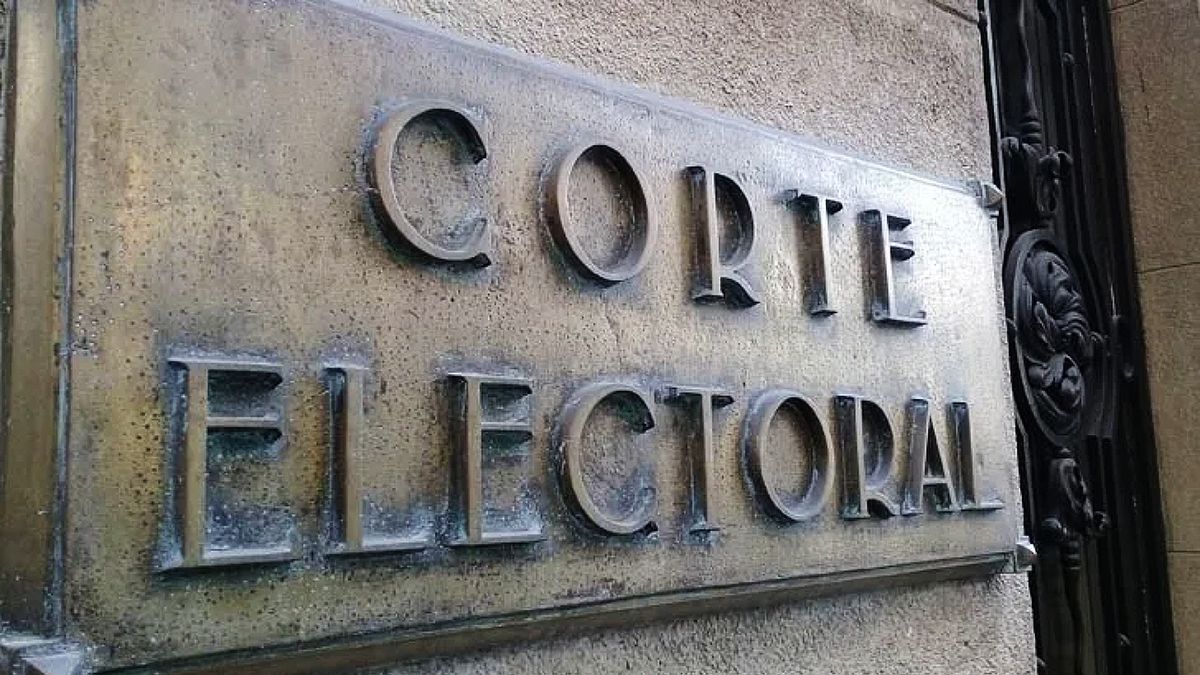The Electoral Court will have to face three cases related to this year’s presidential elections, with the controversy of Alvaro Delgado and the complaint made against him for the campaign spot broadcast in prime time and which lasted more than four minutes.
The promotion, however, reaches the final minute, with the message from the website of the former secretary of the Presidency where the document is accessed. Before doing so, a detailed overview of the policies of the government of Luis Lacalle Pou, interspersed with messages at Delgado’s political events. The sum is a synthesis of what is baptized as “first floor of transformations” and the promise of moving towards a second floor.
The complaint and the role of the Court
It was that audiovisual construction that ignited anger in the Broad Front (FA) and Open Town Hall (CA), forces that considered the duration of the spot to be exaggerated to end up promoting a website. The FA considered that the piece is clearly a campaign spot and not an invitation to read the government program on the website. Alvaro Delgado.
For Town meeting, However, the discussion does not go through the deadlines met or missed for promotion of the pre-candidate. Alvaro Delgadobut of the “almost obscene deployment of certain political currents or sectors, which are making a demonstration of economic power and resources that seem almost infinite,” in the words of their leader, Senator Guido Manini Ríos.
However, the position of the Electoral Court Faced with this, it is up to analyze the case and determine whether the norm was complied with or not, since the law does not provide for sanctions against the pre-candidate.
The cases of the Colorado Party
Two other cases fall under the analysis of the Electoral Court, one of them corresponds to a complaint filed by the Colorado Party against the director of Tourism of Montevideo, Fernando Amado, who today is part of the Broad Front ranks but who was Colorado in the past.
The party demands that the politician stop using the expressions “batllistas” and “batllismo” since they believe the politician misuses them, according to El País. In response, Amado assured that Colorado people confuse “words and images” with “identities.” In this case, the Electoral Court It can only warn the politician or “recommend” him to stop using those expressions.
For its part, José Franzini Batlle, great-grandson of José Batlle y Ordóñez, was also reported by the Colorado Party. From the group they assure that the match presented by Battle: “Batllista Republic” For the next internal elections, it does not apply since he belongs to the Broad Front ranks.
Waiting for the new electoral law
The new law on political parties and electoral advertising has a half sanction in Deputies since the end of last year, but his treatment in Senate it is expanding. The first crux of the issue: the senators in committee rejected the text approved by the lower house.
The initiative voted by the deputies enabled the media to extend the advertising period to 20 minutes per hour during the electoral campaign period, allocating half of that time to spots. Furthermore, it established considerations for these transmissions and distributed the time between the slogans, although without specifying how it should be distributed.
The National Party in the Senate rejected the text with half a sanction and, instead, proposed that each political party have a single five-minute message prior to the general elections and the runoff without compensation.
The special commission on democracy financing of the Upper House began debating the new project last week, but once again delayed it waiting for the industry commission approve the Media lawsuggesting that there could be articles linked to electoral advertising.
Source: Ambito




